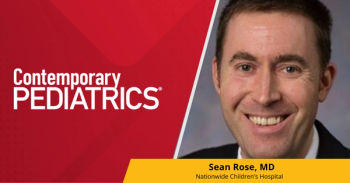
- Consultant for Pediatricians Vol 6 No 4
- Volume 6
- Issue 4
Sunflower Seed Ingestion
Several hours before he was seen in the office, a 2-year-old boy passed stool that contained a large intact sunflower seed. He had poor appetite and abdominal cramps but no recent history of emesis or fever.
Several hours before he was seen in the office, a 2-year-old boy passed stool that contained a large intact sunflower seed. He had poor appetite and abdominal cramps but no recent history of emesis or fever.
Vital signs were within normal limits. The child's abdomen was tender and slightly distended; bowel sounds were hyperactive. Digital rectal examination revealed multiple sunflower seeds, most of which were manually evacuated. The remaining seeds in the upper rectum and lower sigmoid colon were removed with a flexible sigmoidoscope. Mucosal irritation was noted, but endoscopic findings were otherwise normal. A large handful of seeds was removed. The child fully recovered.
A 4-year-old playmate had given the seeds to the boy while the children had been playing without parental supervision. The parents were educated about the potential dangers of sunflower seed ingestion for both the 2-year-old and the 4-year-old (including airway obstruction from seed aspiration, and bowel obstruction and perforation). The lack of responsible adult supervision was of particular concern. The Department of Social Services was involved in this case; however, the boy's mother was not found negligent. *
Articles in this issue
almost 19 years ago
Boy With Rash on Hands and Feetalmost 19 years ago
Wheeze in Preschool Children:almost 19 years ago
When a Parent Asks About HPV Infection...almost 19 years ago
Case In Point: Aberrant Left Coronary Arteryalmost 19 years ago
Erythema Infectiosum and Acropustulosis of Infancyalmost 19 years ago
Child With Bullous Lesion on Left Side of Groinalmost 19 years ago
Erythema Multiforme or Urticaria?almost 19 years ago
Osteoid Osteoma in a Teenageralmost 19 years ago
Tips on Treating MolluscumNewsletter
Access practical, evidence-based guidance to support better care for our youngest patients. Join our email list for the latest clinical updates.






